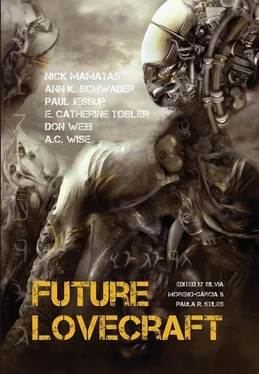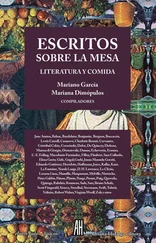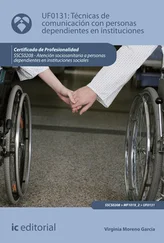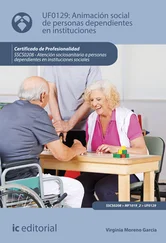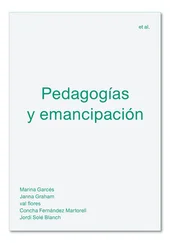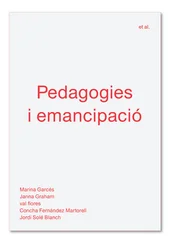“I’m not sure anyone goes to prison for murder, these days. It is 5510, after all. Now, speaking freely, that’s a different story,” said the green jar.
“Will I never change? Will I always be like my mother?” Amy appealed to them desperately. The blue jar snorted.
“You knew from the time you were small that your mother was defective. That she would never change enough to take to the sea. There’s no hereditary reason why you won’t end up the same way. The same thing happened to your aunt. That’s why she starved herself. She couldn’t go on living, caught between this world and the sea.” The blue jar expelled a deep, philosophical sigh. “I remember Irene very well. She was such a vibrant scrap of a thing. I used to love thinking about the day she’d change and begin her new life among the anemone. She was so found of beachcombing when she was your age. I just knew she’d have the most impressive anemone garden in all of Innsmouth Harbor. Fancy my horror when she turned 17 and we saw the mark of defection rise on her. You think you’ve got problems, Amy? You can’t even imagine how disappointed I was. She had everything going for her. She was well-educated in the texts; she was in regular contact with Cthulhu every time she shut her eyes. She had cursed the entire state of Massachusetts with a plague of raining human excrement for three days on her 16th birthday. We were so proud of her. But then, one year hence, it turns out that she’s basically human, after all. She doesn’t have enough of the Innsmouth blood to take to the sea. Somewhere along the way, the bland, indifferent God of Baptists must have wrenched her boundless potential for the Necronomicon into a skulking subservience for the mortal plain. As a consequence, Cthulhu can do nothing with her and she will never be a part of the sea.”
“She won’t be a part of anything, now, because she’s dead.”
“Well now, don’t go too far, Amy. I mean, who are addressing right now?” the blue jar said.
“No one. I am mad,” Amy replied. She got up and went back downstairs. This staircase was so old that it seemed it must fall, soon. The paneling needed to be mended, but there was no labourer Amy was willing to let in the house after one brawny workman had broken the pale-pearl jar when trying to fix the hole in the attic. Amy looked about the house and wondered how it had fallen into such disrepair. There wasn’t any reason for it to be like this. It had been beautiful, once. It was the only thing that was. The last few years had aged it to an ugly, leering edifice that echoed with the sound of creaks magnified to a feverish dissonance. She steeled herself to try and fix a few of the panels, herself.
While she pulled at the planks, and pathetically tried to wrench the bolts off to reset the configuration to a more acceptable level of stability, she imagined how the house could look again if she succeeded. She was too busy thinking about this to notice that she’d plunged her pick too deeply into one of the posts. It gave way with an angry thrash and she stumbled back, terrified. The staircase somehow remained standing, but now, before her, stood a yawning blackness. There was a pocket behind the stairs. She tentatively looked inside, but found nothing. Returning to the scene with a flashlight, she shined it into the depths. She could see nothing except the gauze of spider webs and the miserable muck of water-damaged drywall. The mildew of dust pervaded her nose and she stumbled back from it, angrily. She could not define the purpose of this space, so she quickly tried to cover it back up with the paneling, but her mother wheeled into the room before she could conceal the damage.
“What have you done, you stupid fiend?” her mother yelled.
“I was trying to fix the stairs. I’m tired of living in filth, among fleas, rot and dust. I never could depend on you to clean anything, even when you could still walk. All you ever do is sleep and yell, scream, and cry.”
Her mother rolled to her and slapped her across the face.
“Don’t you ever speak that way to me again, you little snot. You know I am weak and limited in what I can do.”
“You’re not so disabled you can’t thrash me whenever you like.”
“That’s right, because I know how weak and stupid flesh of my flesh is.”
They stood before each other in a tableau of mutual hatred that seethed with barbed, suppressed rage.
“I don’t ever want to look at you again. If you continue to live in this house, you will stay clear of me,” her mother finally said, and turned away from her and wheeled back into her room. Amy surprised herself by not crying. She had shed so many tears in her life. Tears for her lost brother, tears for her lost aunt, and all the snide, unrepentant treatment she’d received. Yet, through it all, she did not cry. It was the first time that tears would not come since she could always cry so easily. She was always so easy to break. They didn’t come. For the first time in a great many years, she felt a sense of relief. Maybe she would never cry again.
After her mother had gone to sleep, she went back to the staircase and opened the pocket she’d exposed earlier. It didn’t have anything in it, but it seemed like it might be part of a larger network. She crept inside. She longed for the peace of dust, but that peace was unrequited. It did not want to give solace to her. It only wanted to be dust. She sat under the panel and in the darkness. She felt like she could sit there for a million years, without compunction about not getting to see what was happening outside. She did not want to know. Certainly, the entire town of Innsmouth already knew enough about all of them, from her drunken father marauding through the streets like a fool, blasting his idiocy to anyone who would listen. If Innsmouth had a dark reputation, then the Gilmans had a particularly slurred stance in a town in desperate need to make something worse than its own blackness.
Would gossip never tire and would burly brutes never be silenced? Would they continue to skulk through the streets outside her door? She lay down on the mildewed floor inside the stairs. She huddled into the corner amidst fungi and rot. She clutched herself. In a few moments, she felt something change. It wasn’t anything which she could readily identify. She breathed long, gasping breaths and felt something in her suspire that was alien in its comfort. She breathed deeply and, in her mind, she felt an azure rapture. Pale blue. Electric. The fleas stopped biting her. The tears would not come. She breathed again and felt it bubble in her blood, again. It was unlike anything she’d ever felt before. Suddenly, she could envision the horrid church hags forgetting who she was. Not only forgetting who she was, but having their gossiping tongues ripped off by some invisible spectre, if they ever dared to speak of her or her family again. She could envision the plutonian trash she’d worked for many years ago, now having to take back everything they’d forced her to cover for them. She could envision the tormentors of yesteryears gone, by melting away into a new light from which their evil was bound. If mortal she must remain, then mortality would not be her enslaver. It would be her liberator. She breathed in the rot and, instead of being repelled, she was delighted. Gossip may be a measure of power in some circles, but it was nothing compared to this: great, fabulous, azure light beaming inside her thoughts.
The seeds had been implanted inside her mind. Now began the countdown.
✻ ✻ ✻
Diary of Amy Gilman:
Day One
I have had the most incredible experience. I have no words for it except: azure rapture. I can’t define it as anything else. It is the most wonderful feeling I’ve ever known. It comes over me like a wave of light and sea. It washes away all my fears, all my anger, all my hatred. This morning, a punk kid plunged a rock through my window. I didn’t even get angry. I didn’t even feel abused. I felt as I do now. I felt incredible.
Читать дальше
